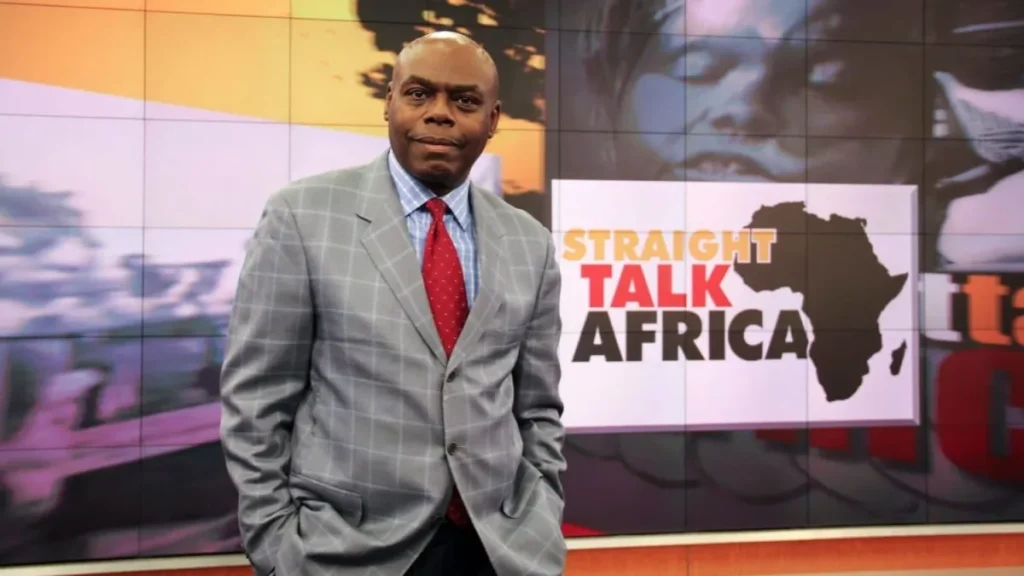KABALE, UGANDA — Renowned journalist and former host of Voice of America’s (VOA) flagship program, “Straight Talk Africa,” Shaka Ssali, has passed away at the age of 71.
Affectionately known as the “Kabale Kid,” Ssali died on Thursday, March 27, in the United States, where he had been based. His death was confirmed by Julius Mucunguzi, a former friend and fellow Kabale native, who currently serves as head of communication and corporate affairs at Uganda’s Electoral Commission.
“Sadly, it is true,” Mucunguzi said. “Shaka Ssali has joined the ancestors. It is very devastating.”
The cause of death has not been disclosed, but Ssali had been battling undisclosed health complications since last year.
Voice of America expressed deep sadness at his passing, describing the Ugandan as a revered journalist and broadcaster. “He passed away at the age of 71, two weeks shy of his 72nd birthday, leaving behind an indelible legacy in African journalism,” the station said.
For over two decades, Ssali was the face and voice of “Straight Talk Africa,” where he engaged African leaders, analysts, and citizens in critical discussions on democracy, governance, and development. His insightful interviews and unwavering commitment to press freedom earned him widespread respect across the continent and beyond.
“A native of Kabale in Uganda, Ssali’s career was marked by a passion for truth, accountability, and empowering Africa’s youth,” VOA said. “His impact on journalism and African discourse will endure for generations to come. As Ndugu Shaka Ssali always said, ‘Let’s keep the African hope alive.'”
Ssali was recently honored with a Lifetime Achievement Award by the Ugandan North American Association (UNAA) for his immense contributions to journalism in Africa.
In his acceptance speech, he dedicated the award to the people of Kabale, his hometown, and paid tribute to his family, friends, and critics.
His work on “Straight Talk Africa” made him a household name, providing a platform for diverse perspectives on critical issues affecting the continent. His signature phrases, “Get better, not bitter” and “Keep the African hope alive,” resonated with many.
Ahead of the 2016 Ugandan presidential election, Ssali moderated the country’s first-ever presidential debate, which was marred by controversy due to restrictions on follow-up questions. In 2021, Ssali retired from “Straight Talk Africa” at the age of 69, with South African journalist Haydé Adams taking over as anchor.
“Straight Talk Africa,” which Ssali launched in 2000, remains one of VOA’s most influential programs, covering politics, economic development, press freedom, and conflict resolution, featuring world leaders and key policymakers. The program is aired on 53 television affiliates across 18 African countries and 54 radio affiliates in 12 countries.
Ssali’s rise to prominence is a testament to resilience. Born in Kabale, he had a turbulent early life, dropping out of secondary school before joining the Uganda Army in 1968 at just 16. He later fled to Kenya and then the United States in 1976 after being linked to a failed coup attempt against Idi Amin.
Despite arriving in the US with minimal formal education, Ssali pursued academic excellence, earning a doctorate in Cross-Cultural Communications and History from the University of California, Los Angeles (UCLA).
A former Ford Foundation Fellow, he also received numerous accolades, including a United Nations Peacekeeping Special Achievement Award in International Journalism.
Muniini Mulera, a fellow Ugandan intellectual and long-time friend, shared insights into Ssali’s early life, describing him as an exceptional athlete in Kabale.
According to Mulera, Ssali was named after Ezera Ssali, the son of a respected Anglican clergyman, Rev. Ezekiel Balaba.
The name “Shaka,” Mulera explains, was derived from his father’s surname, rather than from the famed Zulu king.
For over 21 years, “Straight Talk Africa” hosted a wide array of high-profile guests, including President Museveni, former DR Congo President Joseph Kabila, Tanzanian leader Jakaya Kikwete, Rwandan President Paul Kagame, and Zimbabwe’s late President Robert Mugabe.
Ssali also engaged global intellectuals and artists such as Nobel laureate Wangari Maathai, South African jazz icon Hugh Masekela, and renowned writers Wole Soyinka and Ali Mazrui.
Shaka Ssali’s passing marks the end of an era in African journalism. His unwavering dedication to truth, integrity, and the power of storytelling will be remembered by colleagues, admirers, and generations of journalists he inspired.

